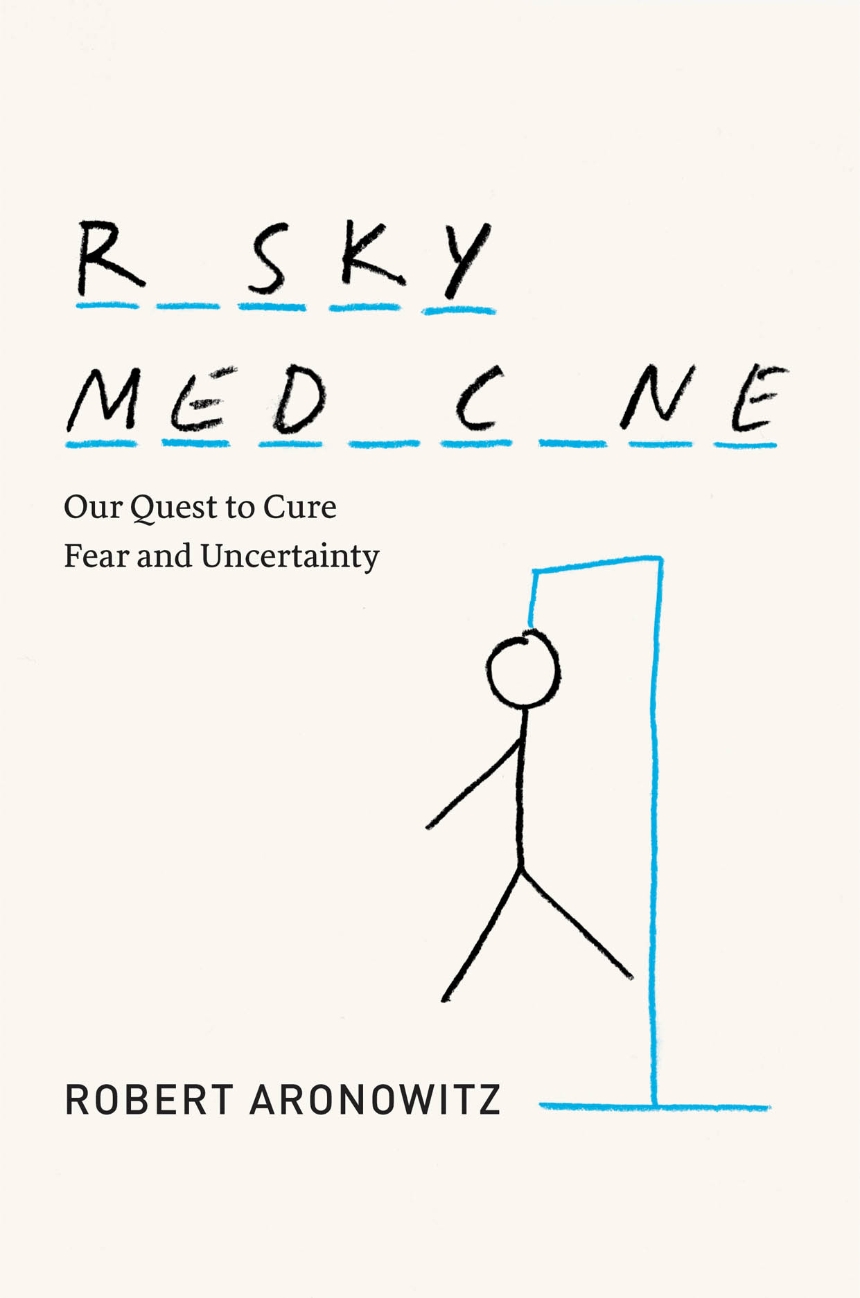Risky Medicine
Our Quest to Cure Fear and Uncertainty
Will ever-more sensitive screening tests for cancer lead to longer, better lives? Will anticipating and trying to prevent the future complications of chronic disease lead to better health? Not always, says Robert Aronowitz in Risky Medicine. In fact, it often is hurting us.
Exploring the transformation of health care over the last several decades that has led doctors to become more attentive to treating risk than treating symptoms or curing disease, Aronowitz shows how many aspects of the health system and clinical practice are now aimed at risk reduction and risk control. He argues that this transformation has been driven in part by the pharmaceutical industry, which benefits by promoting its products to the larger percentage of the population at risk for a particular illness, rather than the smaller percentage who are actually affected by it. Meanwhile, for those suffering from chronic illness, the experience of risk and disease has been conflated by medical practitioners who focus on anticipatory treatment as much if not more than on relieving suffering caused by disease. Drawing on such controversial examples as HPV vaccines, cancer screening programs, and the cancer survivorship movement, Aronowitz argues that patients and their doctors have come to believe, perilously, that far too many medical interventions are worthwhile because they promise to control our fears and reduce uncertainty.
Risky Medicine is a timely call for a skeptical response to medicine’s obsession with risk, as well as for higher standards of evidence for risk-reducing interventions and a rebalancing of health care to restore an emphasis on the actual curing of and caring for people suffering from disease.
Exploring the transformation of health care over the last several decades that has led doctors to become more attentive to treating risk than treating symptoms or curing disease, Aronowitz shows how many aspects of the health system and clinical practice are now aimed at risk reduction and risk control. He argues that this transformation has been driven in part by the pharmaceutical industry, which benefits by promoting its products to the larger percentage of the population at risk for a particular illness, rather than the smaller percentage who are actually affected by it. Meanwhile, for those suffering from chronic illness, the experience of risk and disease has been conflated by medical practitioners who focus on anticipatory treatment as much if not more than on relieving suffering caused by disease. Drawing on such controversial examples as HPV vaccines, cancer screening programs, and the cancer survivorship movement, Aronowitz argues that patients and their doctors have come to believe, perilously, that far too many medical interventions are worthwhile because they promise to control our fears and reduce uncertainty.
Risky Medicine is a timely call for a skeptical response to medicine’s obsession with risk, as well as for higher standards of evidence for risk-reducing interventions and a rebalancing of health care to restore an emphasis on the actual curing of and caring for people suffering from disease.
Reviews
Table of Contents
I
1 Risky medicine: Our quest to cure fear and uncertainty
2 The converged experience of risk and disease
3 The social and psychological efficacy of risk interventions
II
4 The Framingham Heart Study: The emergence of the risk factor approach
5 Gardasil: A vaccine against cancer and a drug to reduce risk
6 Lyme disease vaccines: A cautionary tale for risk intervention
7 Cancer survivorship: The entangled experience of risk and disease
8 The global circulation of risk interventions
III
9 Situating health risks: An opportunity for disease prevention policy
10 Epilogue: The risk system
Acknowledgments
Notes
Index
1 Risky medicine: Our quest to cure fear and uncertainty
2 The converged experience of risk and disease
3 The social and psychological efficacy of risk interventions
II
4 The Framingham Heart Study: The emergence of the risk factor approach
5 Gardasil: A vaccine against cancer and a drug to reduce risk
6 Lyme disease vaccines: A cautionary tale for risk intervention
7 Cancer survivorship: The entangled experience of risk and disease
8 The global circulation of risk interventions
III
9 Situating health risks: An opportunity for disease prevention policy
10 Epilogue: The risk system
Acknowledgments
Notes
Index
